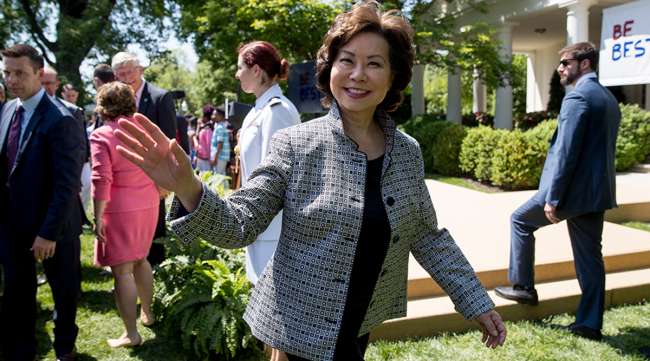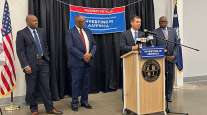Senior Reporter
Secretary Chao: Fuel Tax a ‘Topic of Discussion’ During Infrastructure Policy Talks

[Stay on top of transportation news: Get TTNews in your inbox.]
Responding to whether the federal fuel tax should be raised to help fund the country’s corridors, Transportation Secretary Elaine Chao acknowledged the funding approach garnered interest during negotiations of a comprehensive infrastructure bill.
“That has certainly been a topic of discussion. And the president has talked about it; certain Republicans and Democrats,” Chao said June 26 at an event hosted by the Heritage Foundation in Washington.
“It’s a larger issue connected to what are we going to do in our infrastructure bill. Let’s decide on that first and then we will also come to how are we going to fund it; how are we going to pay for it. How are we going to finance it. There’s lots of different ways,” Chao added.
With the White House and congressional leaders scrambling to identify a sustainable way to fund big-ticket infrastructure projects and the maintenance of surface transportation corridors, Chao has indicated every option is up for consideration.
Neither Chao nor President Donald Trump, however, has endorsed publicly raising the Clinton-era fuel tax.
Last year, several transportation leaders insisted Trump privately advocated raising the federal fuel tax, a claim the White House has not dismissed. Even though Trump advocated for private sector reliance of aspects of the country’s transportation network, comprehensive infrastructure policy measures have not reached the president’s desk for enactment.
Infrastructure funding proponents, such as the U.S. Chamber of Commerce, have called on Congress and the president to approve a higher fuel tax. Revenue from the 24.4-cents-per-gallon diesel tax and 18.4-cents-per-gallon gas tax is no longer sufficient to meet the obligations of a federal account used to assist states.
Citing unreliable federal dollars, states have raised their fuel taxes to advance major projects.




